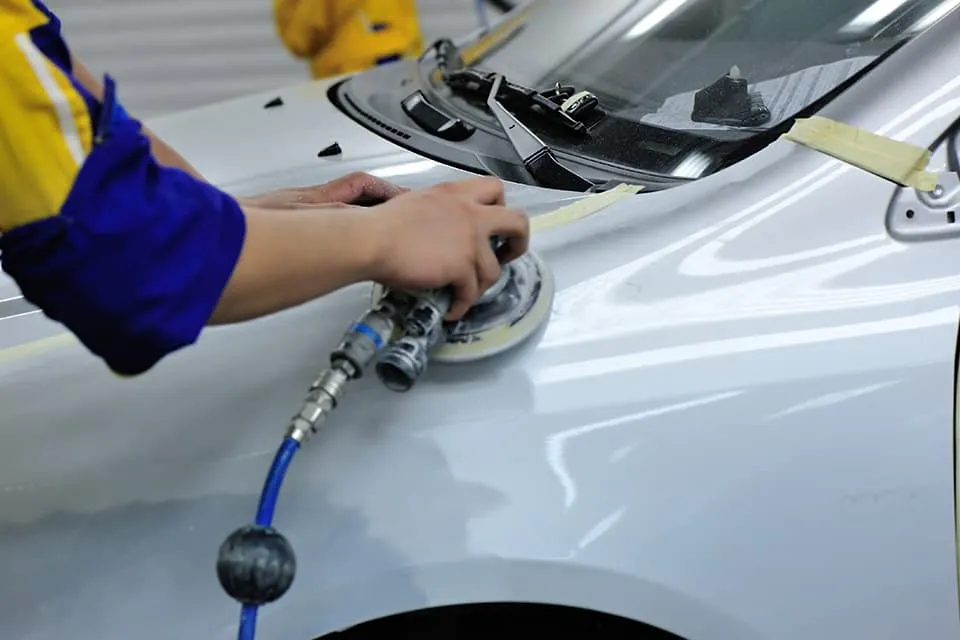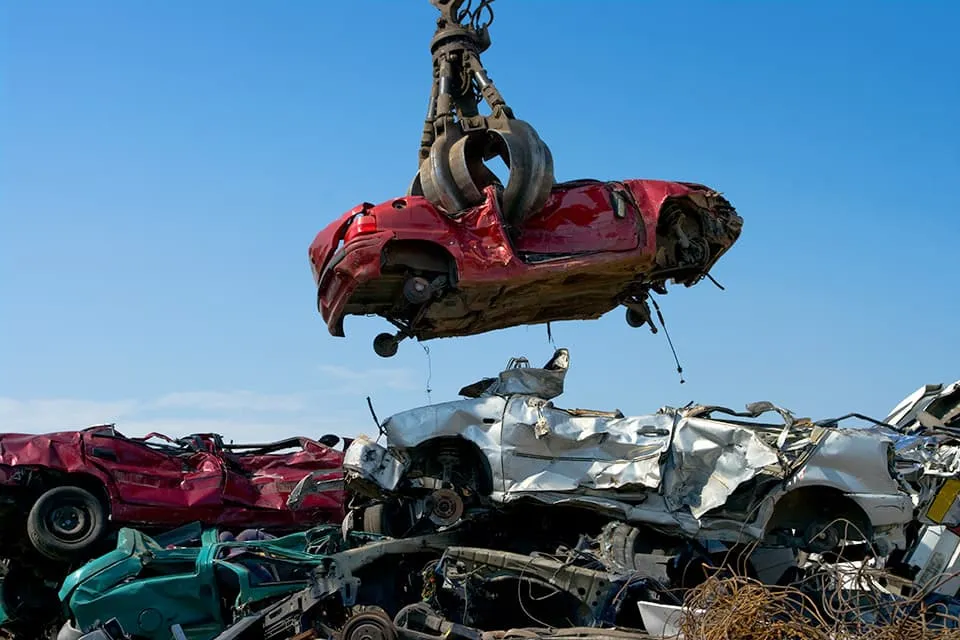What Is a Rebuilt Title?

When a car is declared a total loss or undergoes significant damage (whether that is due to collision, manufacturer error, flood, or any other cause) it will be given a salvage title. If the vehicle is then sufficiently repaired and inspected, it may be given a rebuilt title. There are a variety of standards that a car must meet to attain a rebuilt title, and these differ depending on what state the car is registered in.
How To Get a Rebuilt Title?
If your car receives a rebuilt title, that means that the state has deemed it road-worthy once again. For this to happen, the vehicle must:
- Undergo significant repair: The total scope of repair a vehicle must undergo depends on what type of damage it experienced to receive a salvage title. Vehicles that receive this title have often been in major accidents, been damaged by fires or floods, or been used in the perpetration of a crime. Whatever systems within the vehicle were destroyed or harmed will be cataloged and fixed one by one.
- Go through an application process: After the repairs are complete, you'll need to apply to get the rebuilt title. This can be done by scheduling an inspection with either your local DMV (Department of Motor Vehicles) or state patrol office. You'll need to tow your vehicle to whichever office is required, as the car isn't legal to drive on the road. Then you'll pay any fees and licensing costs. On the day of your inspection, you'll also need to provide the original inspection request, current ID, all vehicle titles, and receipts for all car repairs.
- Be inspected by a sanctioned governing body: Once you've brought your car in (most likely to a state patrol office) your car will need to pass a series of strict requirements. All major component parts used to construct your vehicle will be inspected, all of which must be in compliance with state regulations. Officials will also look to see whether the vehicle or any of its parts are stolen; if they are, you could lose possession of your car immediately.
Overall, this process can take weeks or months to complete. Not all states issue rebuilt titles, and it's always best to check your state's DMV website before purchasing a salvage vehicle for the purposes of repair. Some states that offer rebuilt titles include: Florida, Arizona, Illinois, Georgia, Maryland, Minnesota, New Jersey, New Mexico, New York, Oklahoma, and Oregon. Even if your state does have these provisions, a car can still be denied a rebuilt title. This usually occurs if the damage is too severe or if an inspection shows the repairs were not sufficient to remedy the vehicle's issues.
Is a Rebuilt Title Bad?

Rebuilt titles are not inherently bad, but you should exercise caution when purchasing a vehicle that has one. Rebuilt cars can be harder to insure, so speaking with your insurance company before purchase is essential. You'll also want to have the car closely inspected before finalizing any transaction; there is no guarantee the vehicle has been repaired fully or inspected by a trustworthy automotive technician before the title changed.
Make sure to do as much research as possible and check the car's history. You can use vehicle history search tools to get essential information about a rebuilt car titleand see what kind of damage caused the car to be salvaged in the first place. Unscrupulous dealers will do everything they can to hide a vehicle's true mileage or collision history, and it's up to you to find the facts before handing over your hard earned cash.
Salvage Title vs Rebuilt Title

The main differences between a rebuilt and salvage title comes down to three factors:
- Vehicle Condition: A vehicle with a salvage title is likely heavily damaged and possibly non-functioning. It's not uncommon for a salvage vehicle to necessitate towing to get to any other location, most likely an auto-repair shop or inspection office when applying for a new title. A car with a rebuilt title, on the other hand, should have all of its internal issues repaired. These repairs are what helps a vehicle pass its inspections and receive a rebuilt title so it can once again be legally driven.
- Agency Classification: Whether we are talking about a government agency, like the Department of Motor Vehicles, or an insurance agency, rebuilt and salvage titles are defined by how certain organizations recognize your vehicle. If an insurance agency declares a vehicle a total loss, or the DMV decides the damage fits within its criteria, your car will likely receive a salvage title. If that damage is then fixed up to agency standards, it may receive a rebuilt title.
- Title History: One thing that sets salvage and rebuilt titles apart is the vehicle's title history. For a vehicle to receive a rebuilt title, it must first get a salvage title. If your car hasn't received a salvage title, there is no need to worry about getting it repaired to "rebuilt" standards. If it has, then you'll want to look into your state's requirements for applying and receiving a rebuilt title.
Rebuilt Title Frequently Asked Questions
What Is a Rebuilt Salvage Title?
There is no title branded as "rebuilt salvage". Rebuilt and salvage titles are two separate document types. A salvage title is given to a car that has undergone significant damage or been declared a total loss by an insurance agency. These vehicles have usually been in a major accident, suffered fire damage, or been subjected to flooding. If a vehicle with a salvage title is purchased, repaired, and inspected, it may be given a rebuilt title. A rebuilt title means a car that was once declared salvage has been approved for legal operation once more.
Should I Buy a Car With a Rebuilt Title?
There are several pros and cons to buying a car with a rebuilt title. Vehicles with rebuilt titles often cost far less and can be just as useful as any other used car. The issues you may run into depend on what damage the vehicle went through to be labeled "salvage" in the first place. It's not uncommon for insurance agencies to declare a vehicle a total loss even when it's only undergone cosmetic damage. Often a vehicle just needs some body work to pass reinspection; these salvage vehicles can be a very wise purchase, and help you save thousands of dollars.
Other times, a rebuilt car may not be worth the sticker price. In the cases of more extreme damage, even extensive repairs may miss certain elements that may decay over time. Inspections aren't perfect, and whatever agency looked at the car may miss vehicle issues that could cause you trouble down the road.
Can You Get Insurance on a Rebuilt Title?
Yes, it is possible to get insurance on a car with a rebuilt title. Whether you can get the insurance depends on your state's laws, your insurance company, and the vehicle's condition. It's also possible that your insurance will only offer you liability and collision coverage as opposed to full coverage. All of these factors should inform your decision to buy a vehicle with a rebuilt title.
How To Turn a Rebuilt Title To a Clean Title?
Unfortunately, you cannot turn a rebuilt or salvage title back into a clean title. The only way to accomplish this would be through an illegal process known as title washing. Scammers will use this process to artificially increase the value of a vehicle they intend to sell, usually by moving the vehicle to a different state and applying for a new title.
Can You Drive a Car With a Salvage Title?
In most states you cannot drive a car with a salvage title. A salvage title indicates the vehicle has gone through significant damage and is likely unsafe to operate on the road. To move a salvage vehicle anywhere, it must be towed.
Where Can I Get More Information
About Rebuilt Title Cars?
Buying a car with a rebuilt title is a great way to save money, but you'll want to get background information before finalizing any purchase. Buying a used car of any type requires research, and taking the time to retrieve details about your vehicle can save you time and money. This process can often take countless hours of digging; fortunately, you can make this task much easier with a vehicle history report tool.
These tools are designed to pull information from thousands of databases, grabbing the precise facts and figures you need to make a more informed purchase. Vehicle history search tools can show you key details about a car's history; whether it's been in any major collisions, where it was manufactured, whether it's ever been stolen, and so much more. By learning everything you can about a car, you'll be able to determine whether the dealer is charging a fair price. By choosing the right option, you can make sure you aren't overcharged or the victim of a car-buying scam.
FREE Vehicle Search
- Accidents
- Problem Checks
- Title Records
- Recalls
- Values
- Specs
-
InfoPay, Inc. (dba GoodCar) is an Approved NMVTIS Data Provider
-
-






























